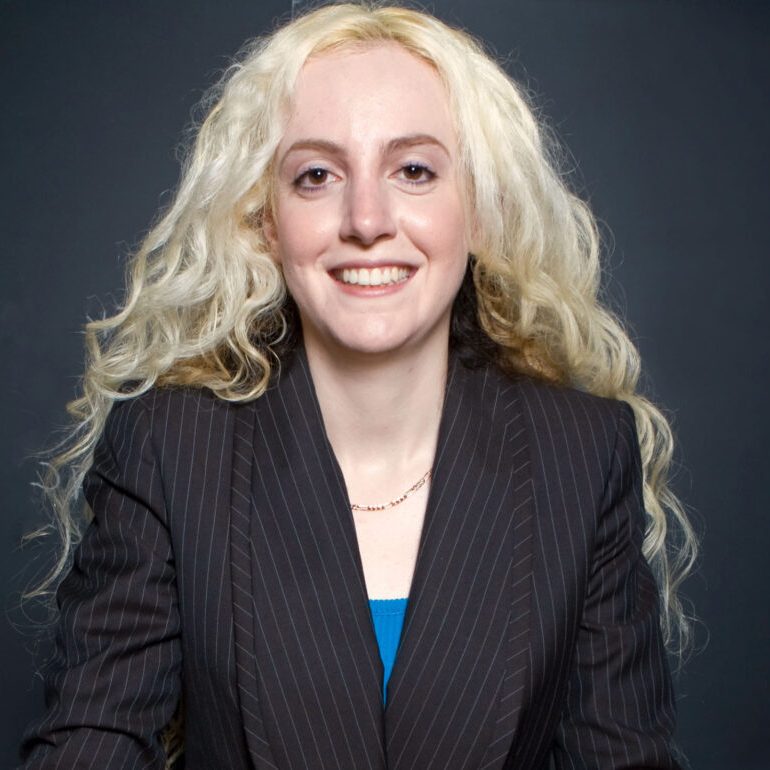Hey, Robot, Can You Help Me Please: Intelligent Robots as Part of our Daily Lives
Goldie Nejat
Abstract
Assistive and service robots are a unique disruptive innovation that will become a crucial part of everyday society, especially in a post-pandemic world. They will aid people with everyday tasks from the workplace to the home, improve quality of life, and meet the urgent and immediate needs of an aging population. Multi-robot cooperative teams and human-robot teams are helping to revolutionize the way we perform tasks in healthcare, retail and even harsh environments.
This talk will present some of my group’s (asblab.mie.utoronto.ca) recent research efforts in developing intelligent and autonomous socially assistive robots to provide personalized care, and promote independence (aging-in-place) and overall wellbeing of older adults, including those living with dementia. In particular, I will discuss some of our many robots including Brian, Casper, Tangy, Blueberry, Salt and Pepper, and Luke and Leia that have been deployed in human-centered environments from long-term care homes to grocery stores to perform social human-robot interactions.
These interactive robots are serving as assistants to individuals as well as groups of users, while learning to personalize their interactions to the needs of the users by using unique bi-directional affect and persuasive strategies. Numerous user studies conducted with older adults in care settings will also be discussed to highlight how these robots can effectively be integrated into people’s everyday lives to support person-centered care.
Lastly, I will also discuss some of our research efforts in developing learning-based semi-autonomous and autonomous rescue robots for exploring unknown cluttered and dangerous disaster environments and finding potential victims in order to aid rescue workers. These controllers uniquely allow robots to learn and make optimal decisions regarding which tasks to perform and when during search missions, as well as determine when human intervention is required.
Speaker Biography
Dr. Goldie Nejat, PhD, P.Eng., is the Canada Research Chair in Robots for Society and a Professor in the Department of Mechanical & Industrial Engineering at the University of Toronto. She is also the Founder and Director of the Autonomous Systems and Biomechatronics Laboratory (asblab.mie.utoronto.ca). Professor Nejat is an Adjunct Scientist at both the Toronto Rehabilitation Institute and the Rotman Research Institute at Baycrest, and a Fellow of the Canadian Institute for Advanced Research (CIFAR). She is also a former co-chair of the EngSci Robotics major.
Prof. Nejat’s research focuses on developing intelligent service robots and multi-robot cooperative teams for applications in health, elderly care, emergency response, search and rescue, security and surveillance, retail and manufacturing. Her team’s interactive robots, including Brian, Casper, Tangy, Blueberry, Salt and Pepper, and Luke and Leia, are being designed to provide cognitive and social interventions, help with activities of daily living, and lead group recreational activities to improve the quality of life of older adults including those living with dementia. She and her team collaborate with healthcare experts and a number of healthcare facilities to develop these unique social robots so that they can be effectively integrated into people’s everyday lives.
Prof. Nejat has been invited to speak about her research to scientists, healthcare professionals, policymakers, governments and the general public at many events, conferences and institutions around the world. She has served on the organizing, program and editorial committees of numerous international conferences and journals on robotics, automation, human-robot interaction and medical devices. She currently serves on the NSERC Discovery Grants committee for Mechanical Engineering and is a past Associate Editor for IEEE Robotics and Automation Letters (RA-L), and IEEE Transactions on Automation Science and Engineering (T-ASE). Her team's work has been presented in over 100 media stories including in Popular Science, National Geographic Magazine, Time Magazine, Bloomberg, NBC News, the Telegraph, Reader's Digest, and the Discovery Channel. In 2020, she received the Engineering Excellence Medal from the Ontario Society of Professional Engineers (PEO) and the Professional Engineers Ontario. Her other recognitions include the Engineers Canada Young Engineer Achievement Award, and the Young Engineer Medal from PEO.
Visit our ESEC 2022 Social Pages
Engineering Science Education Conference 2022
Last updated on Dec 10 2022 by ESEC's Web Team

